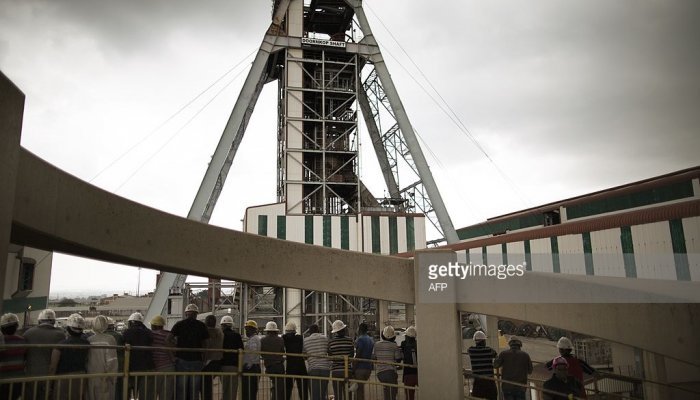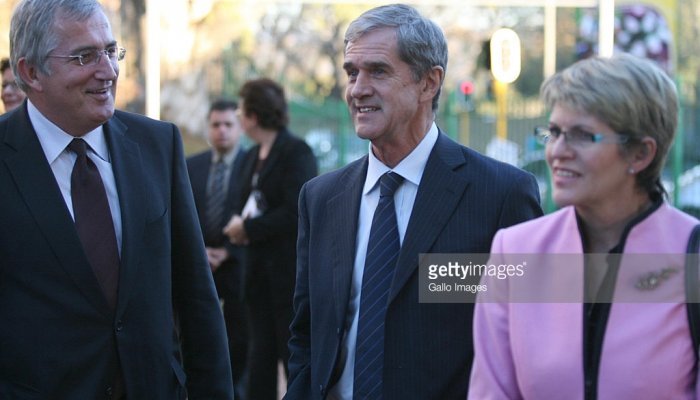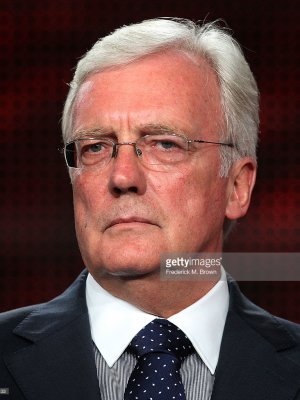Cutifani’s speech ostensibly addressed the crisis facing mining, but his swelling subtext was the crisis facing South Africa’s economy as a whole. He argued that mining remains the most important sector of the South African economy, responsible for around 18% of national GDP, 60% of exports and more than 500 000 direct and 800 000 indirect jobs. If mining is in trouble, so is the rest of the economy—and so is society as a whole. Without a healthy mining sector, South Africa simply cannot deliver on its broader national objectives of creating economic prosperity, as outlined in the National Development Plan.
More than that, the issues he identified cannot be debated and fixed within mining alone: turning SOEs into enablers of economic growth, and rethinking the dynamics of labour relations, are both fundamental issues that go to the heart of the economic model. The principle of black economic empowerment is also something that needs to be aired now that we have some experience of it; another difficult conversation, but one that has to happen.
In short, business, labour and government have got to hammer out a common vision that will see the broad principles underlying all economic activity understood and endorsed by all.
Surely our poor economic performance can be traced to the fact that these fundamentals have not been thrashed out, neither within the ANC nor society as a whole. To put it simply, the National Development Plan and the National Democratic Revolution cannot co-exist.
Cutifani’s reference to the role played by Gavin Relly, his predecessor at Anglo, in the lead-up to the political negotiations of the 80s and 90s also showed the need for a broader process. Speaking with the authority of a respected corporate leader, he was clearly making a call to action on a wider front—and there was a palpable sense amongst his audience that something important had been said.
Allister Sparks, writing in Business Day1, also cited this speech within the broader context of looming economic collapse. He specifically alluded to the Finance Minister’s concern at the extent to which the economy is shrinking and, most tellingly, the news that money intended for capital expenditure would have to be diverted to pay the bloated public-sector wage bill. Sparks agreed that business and labour have to move beyond the adversarial mindsets of the apartheid era.
Should mining lead?
It appears that Cutifani’s call has not gone unheard, at least in in regard to mining. Government, labour and mining bosses are currently involved in several initiatives aimed at coming up with solutions to the challenges faced by the sector, and the Phakisa process for mining (based on Malaysia’s “Big Fast Results” methodology) is underway. However, these initiatives are sector-specific and do not address the fundamental fault lines that are condemning us to economic underperformance.
However, Cutifani’s call to action more broadly, to forge a new economic consensus (with all the implications that would have for society as a whole) has not provoked the reaction one might have expected from business leaders, or other sectors of society. The question is, therefore, who should initiate and lead such a process, and what would it look like?
Cutifani implied that mining as an industry had a leadership role to play, and he certainly emphasised Anglo’s willingness to be a “development partner” both within mining and society at large. But he stopped short of positioning himself or his company for a decisive leadership role—a mark of how things have changed since the days when Anglo American was the South African economy.
By the same token, one wonders whether mining as a sector is best positioned to provide this leadership. Anglo and BHP Billiton (née Gencor) have globalised, and abandoned the vertical integration strategy that saw them drive investment into the broader economy. Cutifani himself said that we need leaders who have skin in the game, and thus have a real stake in a positive outcome—that is no longer true of many of our biggest companies, in mining and other sectors as well.
Important as mining remains, its end game should be more than a hole in the ground. At the same time, as the SA Institute of Race Relations’ Anthea Jeffery points out, beneficiation is already occurring and cannot easily be stepped up in the country’s current circumstances. “One must be realistic about our capacity, in terms of both energy supply and skills, to do more at present,” she says. Nonetheless, she adds, mining still represents our major export industry, and thus is a vital source of foreign currency.
Paul Jourdan, former President of Mintek and Deputy Director of the Department of Trade and Industry, and currently Chair of Coega Development Corporation, adds that mining only contributes to the broader economy if it is forced by circumstance or regulation to invest in what he calls “linkages”, essentially the up- and downstream industries that create jobs and intellectual property for the wider economy.
A complementary point is made by Prince Mashele, Executive Director of the Centre for Politics and Research. Mashele argues that mining represents the foundational phase of the economy—the focus now needs to be on industrialisation, an area in which there has been precious little progress since 1994. If he is right, then ideally leadership should come from business more broadly, from the future of the economy, not its past.
Roelf Meyer, now a GIBS Fellow and the Nationalist government’s chief negotiator at the Multiparty Negotiating Forum in 1993, argues that it’s important to see business as broader than the private sector. “The SOEs have to be seen as part of business,” he says.
Mashele argues that business is the sector that feels the economic pinch first, so it should be the one to “pull the trigger”. But this does not mean business should or could lead the process. Mining bosses are unlikely to step up for the reasons given above; also, as Jeffery points out, they are particularly vulnerable to sanction from the state through the suspension or withdrawal of their mining rights. White business, generally, is reluctant to raise its head above the parapet and, in the estimation of the Helen Suzman Foundation’s Aubrey Matshiqi, is caught in a “crisis of legitimacy” that robs it of the ability to speak with conviction.
Leadership “black hole”?
Black business is the obvious choice but it remains strangely silent in the face of the crisis—it is too politicised and feels intimidated by the government, suggests Dr Nel Marais, CEO of Thabiti Africa Consultancy and a former member of the National Intelligence Service. One might seriously look to the South African Chamber of Commerce and Industry, the country’s largest business grouping, for this kind of leadership. Its President, Vusi Khumalo, certainly acknowledges the need for such an initiative, provided it includes labour, a point that everybody mentions.
Meyer bemoans the fact that the organisation that should be leading the process—Nedlac—is completely ineffectual. With business as fragmented as government, he feels that academics or academic institutions could be well positioned to fill this leadership role. John Stremlau, former Vice-President: Peace Programs at The Carter Center and currently at the Wits Department of International Relations, believes that academics could play an important role because they could be impartial and, critically, could provide the data and analytical firepower that a lasting solution would require. Meyer cites the role that academics like Willie Esterhuyse, Sampie Terblanche and Pieter le Roux played in the 80s and 90s process to create a political settlement.
The success of that previous process, of course, becomes a major point of reference in today’s crisis. Mashele is, as always, forthright: “We have to borrow from what worked in the past,” he says. Meyer, speaking from experience, agrees. He makes the point that while the situation today is not comparable—it is much more complex and fragmented for one thing—“We know things can get done through dialogue. Our own experience is the best proof of that.”
Michael Young, who initiated and facilitated the Mells Park negotiations between the ANC and the Afrikaner establishment in the mid 80s, while working for another great South African mining house, Gold Fields, also believes that process offers us valuable lessons. Like Meyer, Young emphasises the “acute differences” between then and now, not the least of which is that the process would not need to take place in secret to avoid the unwelcome attentions of the apartheid secret police.
Young echoes the sense of urgency expressed separately by Meyer and Matshiqi—Meyer believes that inequality has created a time bomb that even government does not fully see, and Matshiqi that our political settlement is in danger of unravelling.
No free lunches
Also, we simply have to understand that in today’s volatile and highly competitive global business environment, there is no free lunch.
“South Africa is not owed a living, and the country has to earn its own corn, something it can only do if business, labour and government have a common vision,” Young says. “Sovereign states can go bust—and quickly.” Greece offers an object lesson of this truth.
The Mells Park process took five years, so the first thing to recognise is we have to be in for the long haul. With the need for secrecy and a foreign venue removed, it might not take as long, but today’s issues are actually more difficult. Then, the challenge was simple if not easy—get rid of apartheid; resolving the ground rules of the economy is in some ways much more complex, and as hotly contested.
Young believes that a small group is absolutely essential. “Choose who they are with great care,” he adds. “The quality of the people around the table is cardinal.” Mashele agrees, saying that sharp intellects are needed. Other criteria would include a lack of baggage, enough flexibility to compromise and a certain acuity. In addition, participants must have enough influence to influence the communities they represent.
An additional consideration is that the process would likely span administrations.
For all these reasons, Young targeted people who were one level below the apex.
Equally important is the quality of the facilitator, who needs to be neutral and respected, able to instil a high degree of rigour into the process.
While secrecy would no longer be necessary, a certain element of discretion would, Young argues, be required to avoid the inevitable grandstanding that publicity would provoke.
Given that South Africa is a democracy with a legitimate, elected government, Young is adamant that the President has either to will the process (and be prepared to live with the results) or support an independent process.
The latter option, one feels, might be the most practical because it would help to ensure that the process does not get pulled into the sound and fury of politics as usual.
South Africa’s case is urgent but we are not quite at the cliff’s edge, Mashele believes—though clearly it’s time to get moving. “South Africa can become the motor for Africa, but it needs to get its house in order, just like every other country has to do,” Young says.
Hats off to Cutifani for having had the courage to call the crisis and commit himself and Anglo American to its resolution. Now, who will push the start button, and who will lead?
· The offices of both the President and Deputy President were offered the opportunity to comment, but neither chose to do so.
1Allister Sparks, “Time for business, labour to talk as economic crisis looms”, BDLive, 5 August 2015, available at http://www.bdlive.co.za/opinion/columnists/2015/08/05/at-home-and-abroad-time-for-business-labour-to-talk-as-economic-crisis-looms.







